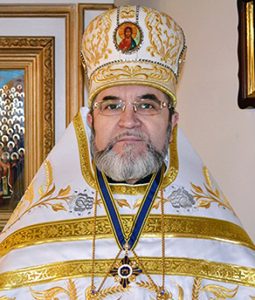Faith groups cannot claim religious belief and doctrine as exemptions from lawsuits that include issues of secular law, a federal court has ruled in the case of an Orthodox priest who sued church officials for defamation.
The Aug. 17 opinion by the 2nd U.S. Circuit Court of Appeals allows the suit filed by Alexander Belya to proceed against defendants with the Russian Orthodox Church Outside Russia, or ROCOR. The church argued that the legal concepts of church autonomy and ministerial exception provided the grounds for dismissal of Belya v. Kapral.
But the court’s decision concluded that “simply having a religious association on one side of the ‘v’ does not automatically mean a district court must dismiss the case or limit discovery. Neither this court nor the Supreme Court has found or even suggested that district court orders like the ones defendants appeal from fall within the collateral order doctrine. Nor can defendants find support for this principle in the decisions of our sister circuits.”

Alexander Belya
Belya filed his federal defamation case in 2020 after being accused of forging documents to win an appointment as ROCOR bishop of Miami.
The original filing by the priest’s attorneys with the U.S. District Court in the Southern District of New York argued that a line be drawn between the faith status of the defendants and the nature of the harm he suffered at their hands.
“Although this case involves religious institutions and persons of the cloth, this is a straightforward defamation action, the resolution of which entails no involvement whatever in religious dogma or practice. The threshold issue in this action is whether the documents plaintiff is alleged to have forged are in fact genuine, as has already been confirmed by a forensic expert,” the Aug. 18, 2020, filing said. “Other issues are defendants’ knowledge of the falsity of their charge of forgery, the widespread dissemination of the defamatory statements and plaintiff’s damages.”
Those damages “include special damages in the form of loss of income, resulting from the drastic decrease of the membership in his church which was the direct and proximate result of the publication of the defamatory statements.”
The federal appellate court ruling was a victory despite the fact it did not decide the merits of Belya’s lawsuit, said Rachel Laser, president of Americans United for the Separation of Church and State, which argued the case before the 2nd Circuit in March.
“The court’s decision today is a win for the rule of law and a critical step in our fight to halt the weaponization of religious freedom,” Laser said. “Neither Father Belya nor anyone else should be forced to tolerate public defamation and the destruction of their reputation by a religious organization with no legal recourse. There must be equal justice under law.”
The ruling also sends a message to religious groups that they are not above the law, she said. “Churches don’t get to rewrite the rules of legal procedure by claiming a religious defense. The courts should not allow religious freedom to be distorted as a license to deny people basic civil rights.”
The appeals court did not rule out the possibility that matters of faith and church doctrine could come into play in the Belya case as it proceeds through the courts.
“But secular components of a dispute involving religious parties are not insulated from judicial review; a court may use the ‘neutral principles of law’ approach. So long as the court relies ‘exclusively on objective, well-established (legal) concepts,’ it may permissibly resolve a dispute even when parties are religious bodies,” according to the appellate ruling.
ROCOR is represented by the conservative legal advocacy firm Beckett, which contends the case is not as Belya describes it but is instead about whether Beyla was qualified to be a bishop. And that is an internal church matter, the church and the law firm believe.
“The First Amendment protects churches’ right to choose or remove their clergy without government interference,” the firm explains on its website. “Father Alexander’s claims ask the court to punish the church for exercising its right to choose its own clergy, which violates both the Free Exercise Clause and Establishment Clause of the First Amendment.”
Beckett said ROCOR intends to appeal the latest ruling allowing the case to proceed.
Related articles:
For now, David Platt has won the battle against internal critics at McLean Bible Church
McRaney case against NAMB must proceed for now, U.S. district court rules


